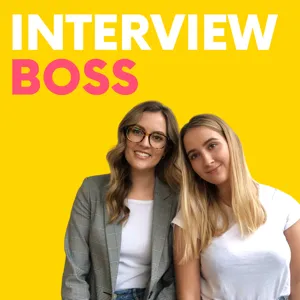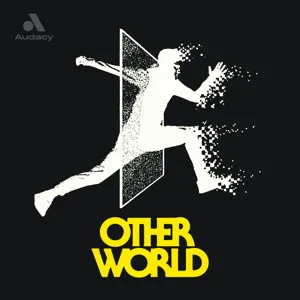Podcast Summary
The phrase 'that's a great question' is commonly used in interviews and its usage has increased in American English: A linguist discovered the phrase 'that's a great question' is frequently used in American English interviews, with over a thousand instances in a large corpus, compared to only 35 in a British corpus.
The phrase "that's a great question" has become increasingly common in spoken English, particularly in interview settings. This trend was discovered during a conversation on the Freakonomics Radio podcast between the hosts and a linguist named Erica Orakit. Orakit, who has expertise in several languages, began investigating the origin and frequency of this phrase in spoken English. She used two large collections of spoken language data, the British National Corpus and the Corpus of Contemporary American English, to conduct her research. In the British National Corpus, which contains 100 million words, the phrase only appeared 35 times. However, in the Corpus of Contemporary American English, which has over a billion words, the phrase appeared over a thousand times. The majority of instances in this corpus were found in interview settings on networks like CNN and NPR. It's important to note that the phrase "that's a great question" is often used as a polite response to acknowledge and encourage the person asking a question. It's not necessarily a sign of a poor question, but rather a way to keep the conversation flowing. However, its overuse can make it seem insincere or meaningless. Orakit's findings highlight the importance of language trends and the impact they can have on our communication. It's a reminder to be mindful of our use of language and to strive for authenticity and clarity in our conversations.
Using 'that's a good question' as a conversational tool: Acknowledging a question with 'that's a good question' can buy time to formulate a response, but overuse can make it a mere habit.
The phrase "that's a good question" can be used as a conversational tool, or a bridge, during interviews or conversations to redirect the discussion towards desired talking points. Media and PR expert Bill McGowan, who trains CEOs, athletes, artists, and even wedding best men, emphasizes this technique in his book "Pitch Perfect." By acknowledging a question with "that's a good question," interviewees can buy time to formulate their response while avoiding potentially dangerous or unwanted conversational roads. However, overuse of this phrase can make it lose its meaning and become a mere habit, as demonstrated in a training session where a participant started every answer with "that's a really good question." It's essential to use this technique thoughtfully and not let it become a linguistic tick.
Obama's use of meta-discourse phrases during interviews: Obama uses phrases like 'look,' 'listen,' and 'that's a great question' to shift focus, buy time, flatter interviewers, and maintain a positive atmosphere during interviews. These phrases are examples of meta-discourse and can be seen as manipulation or a compliment, but overuse can lead to criticism.
During interviews, former President Barack Obama often uses phrases like "look," "listen," and "that's a great question" as verbal bridges to shift the focus of the conversation towards his perspective. These phrases serve multiple purposes, including buying time, flattering the interviewer, and maintaining a positive atmosphere. These phrases are examples of meta-discourse, as they do not directly relate to the content of the discussion but rather the discussion itself. While some view this as linguistic manipulation or "BS," others argue that it acknowledges the importance of the person asking the question and can even serve as a compliment. However, overuse of these phrases can become a crutch or tick, leading to criticism and backlash. Ultimately, these phrases are tools used to guide the direction of the conversation and create an illusion of productive dialogue, even when the discussion may not be progressing as intended.
The Power of 'That's a Great Question': Acknowledging great questions can foster positive interactions, encourage critical thinking, and create a more productive and enjoyable exchange of ideas.
The phrase "that's a great question" can serve various purposes. For some, it may be a form of retribution or a way to give an action item to the questioner, as demonstrated by Silicon Valley entrepreneurs. For others, like economist Steve Levitt, it's a way to acknowledge and reward those who ask interesting or thought-provoking questions, making them feel valued and appreciated. The phrase can also lead to engaging and insightful conversations, as experienced by Levitt and Dubner during their book tour interviews. Ultimately, the use of "that's a great question" can foster positive interactions, encourage critical thinking, and create a more productive and enjoyable exchange of ideas.
The Art of Asking Great Questions: Thoughtful preparation and consideration are key to asking great questions. Simplifying questions and allowing interviewees to think before answering can lead to insightful responses.
Asking great questions is an art form that requires thoughtful preparation and consideration. According to Stephen Dubner, co-author of "Freakonomics," asking good questions can make interviews fun and engaging, even for the most brilliant and well-prepared interviewees. Charlie Rose, a renowned television interviewer, is a master of this art. He takes pride in the questions he asks and appreciates it when interviewees acknowledge their value. The craft of a good question is not always spontaneous; it involves thinking about the question's structure, expected response, and the impact of the question on the interviewee. Dubner shared that he spends a lot of time considering how to ask the best possible question to elicit the most insightful response. He has found that simplifying questions and allowing interviewees to crystallize their thoughts before answering can lead to more revealing answers. Overall, the art of asking great questions requires intentionality, preparation, and a willingness to engage in meaningful dialogue.
Asking meaningful questions leads to deeper conversations: Asking thought-provoking questions can inspire new insights and perspectives in conversations, leading to deeper and more memorable interactions.
Asking meaningful and thought-provoking questions can lead to deeper and more interesting conversations. Charlie Munger emphasized that he doesn't ask questions to make people repeat what they've already said, but rather to inspire them to provide new insights and perspectives. He encouraged this approach not only during interviews but also in everyday conversations with friends, family, or strangers. Munger shared that people often come to conversations expecting to talk about themselves, but the most profound and memorable conversations often arise from asking questions that delve deeper into topics, rather than just reacting to the moment. So, the next time you engage in a conversation, try to ask questions that inspire genuine curiosity and may lead to unexpected and enlightening answers.
The power of acknowledging challenging questions: Recognizing the value of thoughtful inquiries can lead to productive dialogue and intellectual growth. Use phrases like 'that's a great question' and 'rebus casa fram' to encourage open-mindedness and curiosity.
The phrase "that's a great question" can be used as a powerful tool for productive dialogue and intellectual growth. During a conversation, the speaker shared how they first encountered this phrase in an academic setting from a colleague, who instead of dismissing challenging questions, acknowledged their value and potential merit. The speaker was inspired by this approach and adopted it as a way to encourage thoughtful engagement and open-mindedness in their own interactions. Additionally, the speaker introduced a new phrase, "rebus casa fram," which can be used as a response when one needs to acknowledge a comment but doesn't fully understand it or wants to give themselves time to respond. This phrase, which means "mumble house mumble" in Latin, was taught to the speaker by a former dean of students at Dartmouth. Overall, these phrases and approaches emphasize the importance of acknowledging the value of questions and comments, even when they may be difficult or confusing, and fostering a mindset of intellectual curiosity and growth.
Strategic use of meaningless phrases: Words have power and can be used creatively to navigate social situations. Question assumptions and don't always accept information at face value.
Words have power and can be used strategically to avoid awkward situations or to confuse listeners intentionally. The speakers were discussing the use of the phrase "Rebusa Casafram" as a meaningless phrase that could be used to end a conversation without causing offense. This idea was inspired by a California Energy Commission projection from the late 1970s that new houses built after energy efficiency standards were enacted would use 80% less energy. However, it was noted that this projection was not accurate. The speakers also mentioned that Freakonomics Radio explores the hidden side of everything and encourages listeners to question assumptions. So, in short, the takeaway is that words can be used creatively to navigate social situations and that it's important to question assumptions and not always accept information at face value.





